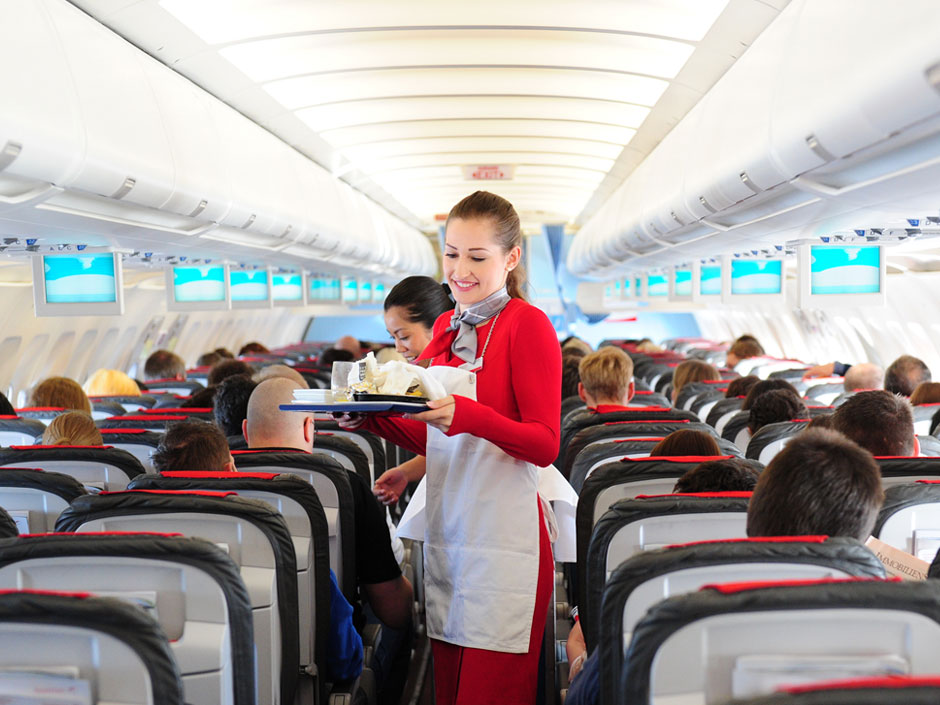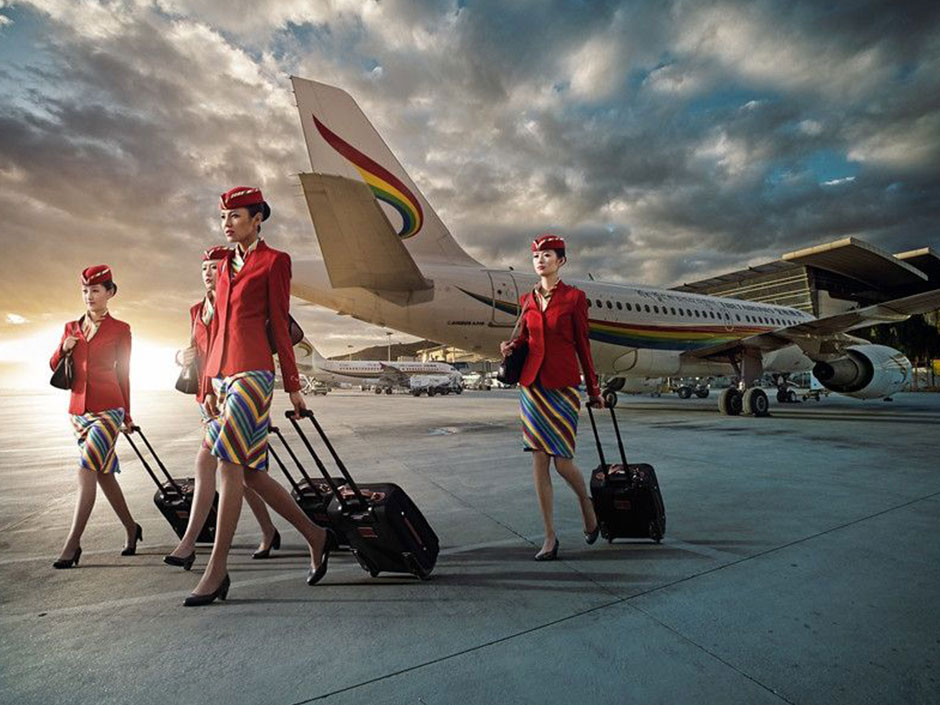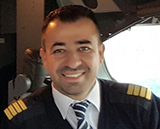BECOMING A CABIN ATTENDANT
Time becoming more and more crucial for business and leisure travellers, air travel tends to also show speedy growth with safety as the prime factor in the background. With new airlines entering the industry, you can now find more and more destinations that serve and link small towns/cities and major hubs.
Renowned as the angels of our skies, many wonder and sometimes question as to what the actual job responsibilities of cabin attendants are. A brief look into the charming work ethics of cabin crew, interpersonal relationship with passengers, crisis management, communication skills, multi-lingual skills and capability to apply first aid treatment are merely a short list of what you should witness with the angels. The once popular belief that stewardesses only looked good and served good food is more than just an innocent thought and far from the reality. A lot of training and dedication goes on behind closed doors to earn the angels their wings.
Cabin attendants are obliged to follow strict uniform procedures which are routinely checked prior to each flight during the preflight briefings. Preliminary preflight briefing takes place with the chief cabin attendant acting as the most senior crew member. The entire cabin crew completes their uniform regularity and paperwork checks at this stage before meeting the flightdeck crew for the more formal briefing that the commander carries out. Upon reaching the aircraft on stand, the complete cabin crew including the chief cabin attendant (also called the purser) inspects all required emergency equipment on board that is mandatory for revenue flight. Any missing items or items with overdue dates are expeditiously reported to the commander. Highest line of command on board passenger aircraft starts with firstly the captain, and then continues with the chief cabin attendant, to end with the cabin crew members depending on seniority. As such, any information that needs the attention of the commander must be relayed through the chief cabin attendant. (Only exception to this rule is when imminent danger exists to the aircraft and therefore the commander shall be notified as soon as it is deemed practical by any of the crew members). The commander then decides whether technicians shall be alerted for the discrepancy or whether the flight can continue without the items in question.
Once boarding begins, cabin crew has a multiple number of roles. The most apparent of all is the welcoming of the passengers on board. Airlines love to value their customers to attract more business, and there could be no better way to do this than the smiling eye contact you can offer the passengers that will inevitably help the first impression.
The hidden role, not so apparent at first glance, is the observing/monitoring role the cabin crew are trained to conduct. Despite the passengers having gone through tight security measures at the terminal, the cabin attendants are the last line of defense for spotting anyone with suspicious behaviour. Therefore, cabin crew are trained to concentrate on following the moves and actions of their passengers for blatant misconduct. Note that a fine balance must be maintained watching the passengers since some strange act can also be the sign of a nervous flyer rather than a security threat.
During the boarding phase, cabin crew are strongly encouraged to avoid any other activities such as catering, cleaning or operational matters and instead concentrate on the boarding of passengers in a safe and sound manner.
One other fundamental role of a cabin attendant is to help passengers into their designated seat number. As easy as it may seem, this can cause chaos in crowd control if you have passengers with special needs (disabled or elderly) and unruly passengers who disrespect the needs of passengers with special needs. Under such circumstances, the passenger with special needs must have priority over able bodied passengers and therefore law and order must be maintained accordingly.

You can also ask for good leadership and quick problem solving skills to be present with cabin attendants. Furthermore quick problem solving skills, practical solution to problems can further improve efficiency. Good sense of humour is an essential asset to comfort passengers under difficult conditions. However calm passengers may seem, fear of flying can only be spotted by experienced cabin crew and as a result cabin attendants will be analytical when spotting those who need close observation and support to help them calm down.
One of the mandatory and essential training the cabin crew is obliged to follow is first aid. As a result, they are entitled to and must apply first aid to any passenger or crew member who need immediate attention before professional medical attention can be received on the ground. As common sense prevails, medical personnel flying on board as a passenger must be consulted for any support they may possibly offer.
Sufficient spoken English is of paramount importance if a cabin attendant is to enjoy the privileges of his/her license for a long time. This is necessary when establishing communication with passengers, ground crew, other crew members and duties related to documentation. Acceptable diction with fluent command of the English language is essential.
Cabin attendants are qualified crew members who establish the environment in which passengers are transported from point A to B whilst observing the rules and regulations set forth by the authorities. Cabin crew must never have rough temperament and never have stressful work ethics.
With regards to looks, many airlines nowadays pay attention to avoiding tattoo and evident scar on the body. Restrictions are also in place for long and short hair. Jewellery must be modest and not pose any risk or restriction to duties that shall be carried out in the event of an emergency. Neat, tidy and pretty looks are always preferred with close attention to height and weight ratio.
Cabin attendants have a high profile job, raising awareness and wonder to onlookers, with special interest in their private lives. This puts extra burden on cabin attendants to observe cultural diversity of the region in which they conduct their profession. Breach and misconduct of ethical values are usually punished by airlines to the extent where contracts may be terminated. Rules are typically clear and harsh.
Global implementation of civil aviation rules are fairly uniform even though differences can exist from one region to another depending on airline policy.
Wishing you safe and pleasant flights in an ever-changing world of aviation.

